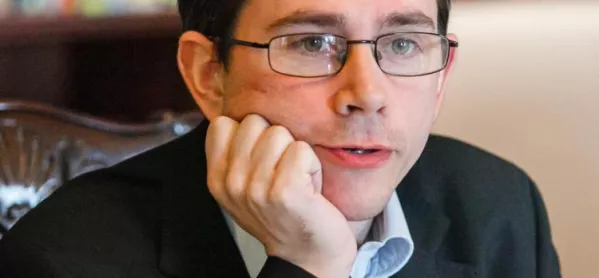Voting used to be about rich and poor. The workers voted Labour and the owners voted Tory.
Of course, it was never quite as simple as that, but income was the frame through which politics was seen throughout the 20th century. At the election earlier this year, though, rich people were just as likely to vote Labour as poor. Education level was a much better predictor of voting behaviour - with graduates 50 per cent more likely to vote Labour than Tory.
Education was also the best predictor of how people voted in the Brexit referendum and in the recent presidential elections in France and the US.
Why is this happening? Well one reason, in the UK at least, is the massive expansion of higher education over the past 50 years. Since 1990 there has been an almost 400 per cent increase in the numbers going to university, partly because of the incorporation and growth of polytechnics but also through the opening of multiple new institutions and the expansion of nearly all existing ones. Around two-thirds of English universities have opened in the past 30 years.
The impact of this change on society has been substantial. First, the number of graduates available has meant that more and more jobs, especially in managerial or administrative roles, have become graduate-only. There are ever-fewer high-status roles available to those without a degree. Employment status is one driver of the socio-cultural values that underpin voting behaviour. For instance, immigration is far more threatening to a construction worker than to a services manager in a degree-level job.
University ‘makes people more liberal’
Secondly, it is well-established that going to university makes people more liberal. Why this happens is the subject of much debate but one reason is that leaving your community and spending time with people of other backgrounds makes you more open to change and less concerned about loyalty and tradition, which underpin more conservative values. It’s also the case that liberally minded people are more likely to go to university in the first place, meaning those who aren’t have a strong social incentive to shift their views.
It’s important to emphasise, though, that it is about values and not intelligence. Numerous studies by people like Dan Kahan, who runs the cultural cognition project at Yale Law School, have shown that where our values conflict with our reasoning it’s the former that will win out. Indeed, more numerate and literate people are better at cherry-picking evidence and sifting through arguments so as to push their values-based agenda.
Which means that an education-based divide in voting presents a real danger to those of us who work in the sector. When Michael Gove criticised “experts” during the referendum, he was tapping into a widespread belief among those with fewer qualifications that the highly educated are using their apparent expertise to enforce their privilege.
It is already the case that education is treated with suspicion in large sections of the country, in part because the more successful a pupil, the greater the chance of them leaving their family and community. If this geographical relocation is also seen as leading to a change in values that creates an unbridgeable distance, then this suspicion will harden into active dislike.
There are no easy answers to this polarisation around values but those of us who spend our time trying to increase social mobility need to be aware that our success in helping more young people into university may be working against the long-term interests of the communities most in need of help. And we all need to make a greater effort to understand the values than underpin others’ beliefs, rather than trapping ourselves in an inviting but ultimately destructive echo-chamber.
Sam Freedman is executive director of Teach First, and a former policy adviser to former education secretary Michael Gove
Teach First is running a conference on social mobility at Wembley Arena on 24th October. Free tickets are available here
Want to keep up with the latest education news and opinion? Follow Tes on Twitter and like Tes on Facebook





